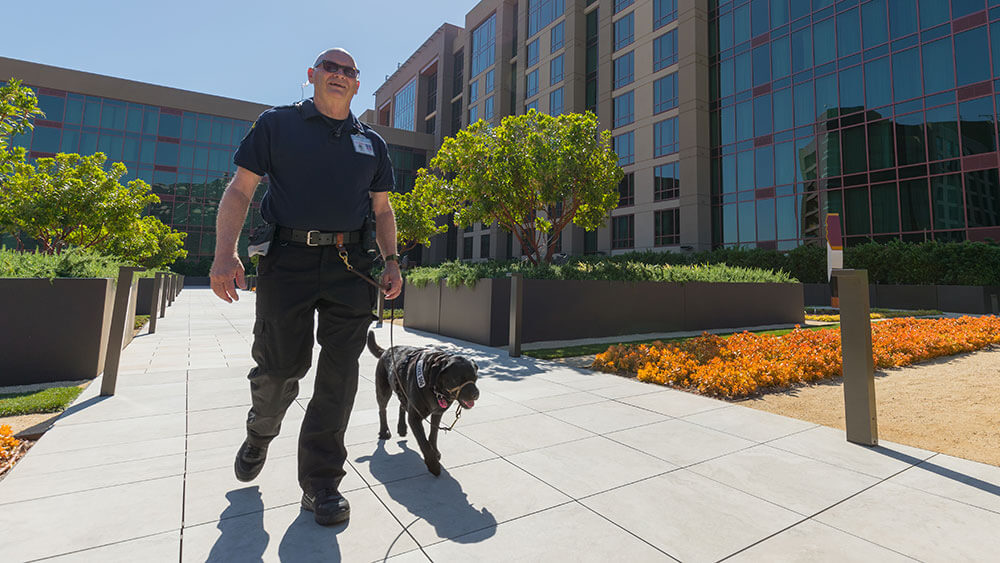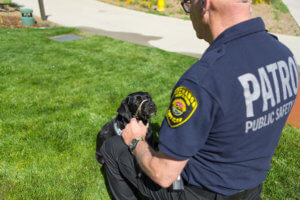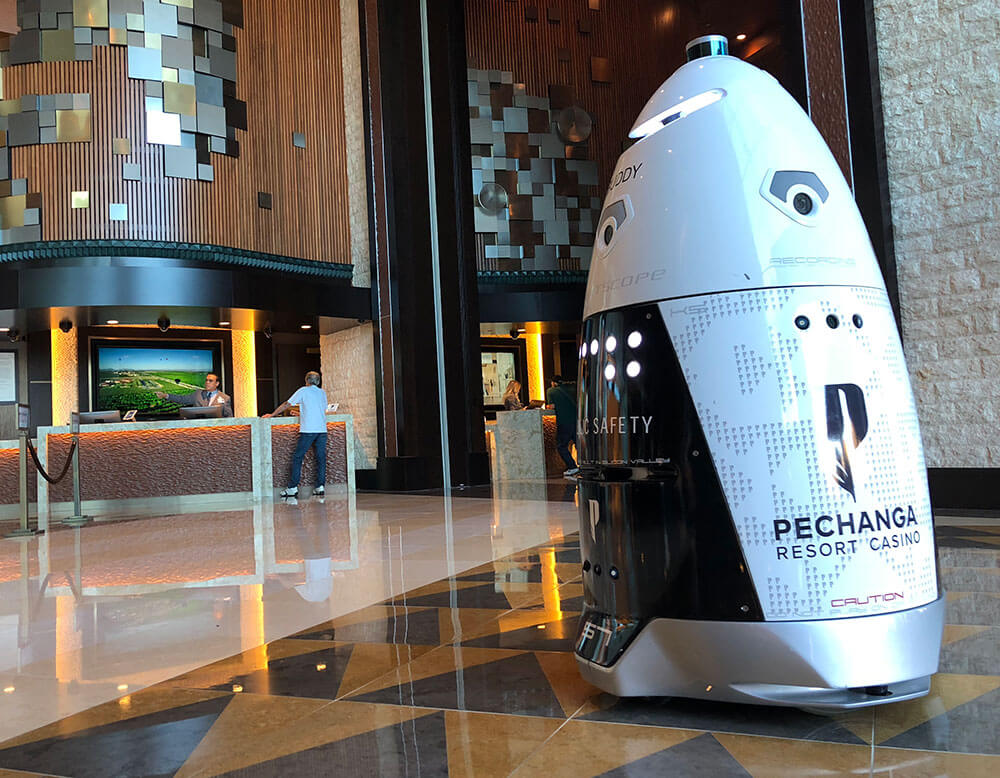
John Tipton and his service dog, Daisy, patrol around Pechanga Resort Casino in Temecula, California. (Courtesy of Pechanga)
One resort has made an effort to employ veterans and service animals — in addition to robots — to safeguard its grounds.
A decade ago, Robert Krauss was representing Pechanga Resort Casino, where he serves as vice president of public safety, at a job fair. He met a United States veteran, and their encounter made a lasting impression.
“There was this young man that was just walking around, and you could really see that he was really depressed,” Krauss recalled. “You could just see it all over — his body language and the way he walked and the look on his face. I went over to talk to him and he made a comment about how nobody wanted him.”
A former scout sniper, the vet asked Krauss who would want to hire him with those skills after his service. “I talked for a long time about his leadership qualities and everything he can bring that an employer would be happy to have,” Krauss said. “That conversation always stuck in my mind, because it really bothered me that we had these men and women who think nobody wants them after service.”

All service animals go through a temperament test before joining the Pechanga Resort Casino security program — an evaluation that John Tipton, pictured with Daisy, now oversees. (Courtesy of Pechanga)
Krauss himself is a veteran. He began working at the Temecula, California–based Pechanga Resort Casino 22 years ago, after serving in the Marine Corps. More recently, when Krauss heard veteran John Tipton’s story of struggling to find a job after serving in the military because he needed a service animal to help him cope with post-traumatic stress disorder, he said it really bothered him. “I set up a meeting with him,” he said. “One of the first things he said was, ‘Nobody really wants me,’ and I immediately went back to that young man again and that conversation. I said, ‘No, we’ve got to change that, because you are wanted and we do want you.’”
And so in 2018, Pechanga launched a workplace program designed to recruit former military members and their service animals. Tipton and his service dog, Daisy, are the first six-legged team in the program, as well as the 301st and 302nd members of Pechanga’s extensive Department of Public Safety. The property intends to hire at least 10 veteran/service animal teams that will be responsible for securing a safe environment for guests both inside and outside the property, patrolling pool areas and parking lots. All service animals will be required to go through a temperament test before joining the program — an evaluation that Tipton now oversees.
“The two of them walking around brings awareness [to security measures],” Krauss said. “It just brings a whole new level of security to the property. It’s a visible deterrent, and especially in the hospitality industry, visibility, to me, is big. Having a strong presence is important, and dogs have intuition about people — they see and pick up on things we may not see.”
In addition to Tipton and Daisy, Pechanga added another security measure following its $300-million expansion last year — robots. The property has one roving bot and one stationary bot — Buddy and Rudy, respectively — programmed to assist with security during meetings and events on the property. The units, created by Knightscope, have the ability to record 360-degree video, facial recognition, and thermal imaging, as well as give a new camera perspective at eye-level, Krauss said.
“We have thousands of cameras already, Krauss said, “but they bring a whole new set of analytics,” Krauss said. And Buddy and Rudy, much like Tipton and Daisy, attract plenty of positive attention from guests, meaning that they also provide an extra layer of security due to their visibility. Pechanga has plans to add more stationary robots to guard all entrances of the property, in addition to drones.
“As technology progresses, I think people need to get on board and really need to start looking at how technology can be a [crime] deterrent,” Krauss said. “There are some amazing things out there that we could be using to make our jobs much more effective.”

Buddy the roving robot adds another level of security at Pechanga Resort Casino in Temecula, California. (Courtesy of Pechanga)
Casey Gale is an associate editor at Convene.
